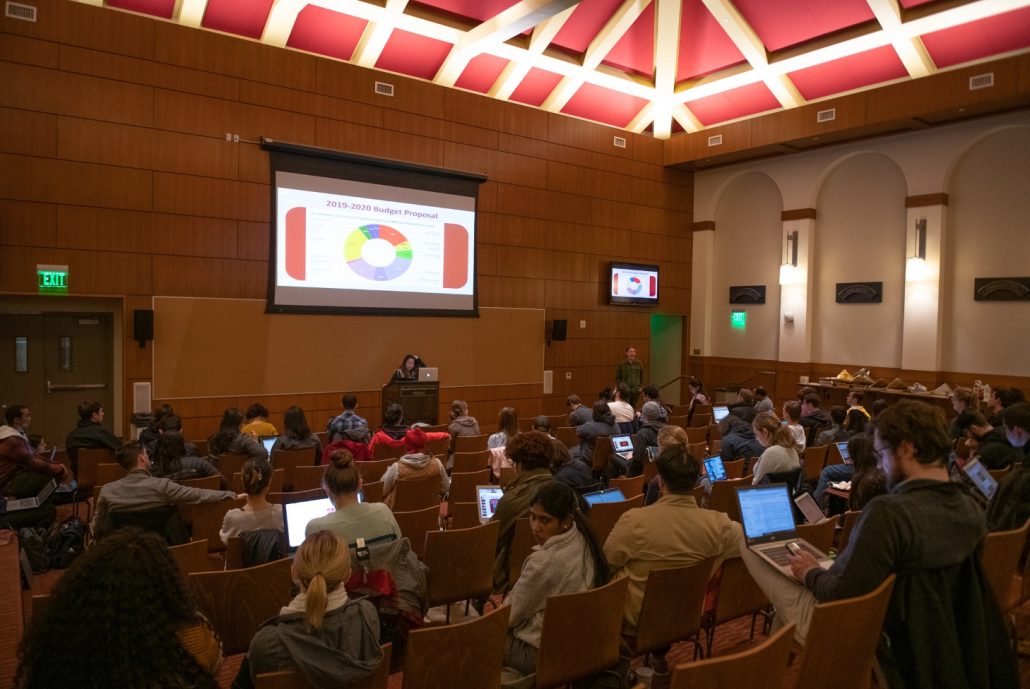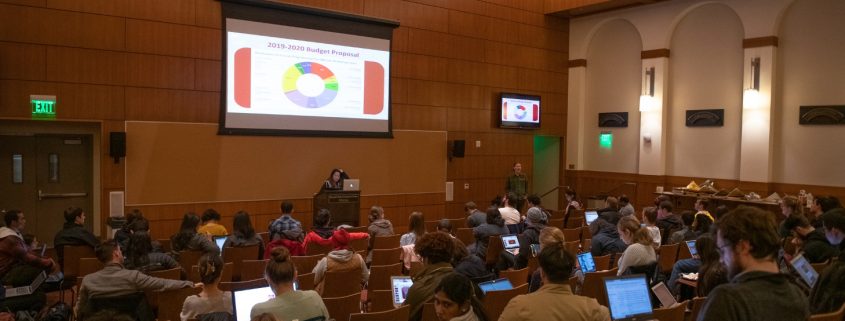Graduate Student Government votes to increase programming fees

When the Graduate Student Government proposed a budget cut for travel grants Monday evening, some senators were unhappy with the proposal.
One senator argued that travel grants, which allow students to travel to business conferences and present their research projects, are an essential part of any graduate program.
However, GSG President Joycelyn Yip said that in order to maintain travel funds, GSG needs to increase programming fees, which go to graduate students’ respective departments to fund various programs.
“If you want to keep travel grants up, this is why we’re proposing a programming fee increase,” Yip said.
Yip proposed a 7.5 percent increase in programming fees for the 2019-20 academic year to offset a stagnant budget over the past 30 years. The discrepancy in fees and rising costs of tuition have resulted in budget cuts of programs meant to support graduate students in their academic endeavors.
Senate members ultimately approved the programming fee increase by a slight majority. For future programming fees, senate members voted for a 3 percent increase for the 2020-21 academic year.
Next semester, graduate students can expect an increase in programming fees to help support travel grants, emergency fund programs and U-Pass, a reduced fare public transit program. Yip said the changes reflect rising prices across campus.
“We want to catch up with University prices, as well as everything else,” Yip said.
According to Yip, GSG also wants to shift the burden of funding graduate students’ endeavors back to their respective departments.
“We want to see departments stepping up to fund their students to travel to conferences and to travel to do the networking necessary to get hired,” said Emmett Harsin Drager, vice president of advocacy for GSG.
Citing a New York Times article, Drager said capital is one of the main barriers for graduate students of color who are searching for work opportunities.
“We want [travel grants] to be a program that reaches out and touches low-income graduate students and graduate students of color,” they said.
Senate members also voted on a Freedom of Information Bylaw, which aims to publish senators’ contact information so students can contact their representatives.
The Senate also addressed the issue of increasing transparency with the graduate student population.
According to Yip, only major proposals were previously available to the public.
Members also brought attention to increasing transparency in publicizing the expenditures of GSG and providing information on what events or programs fees supported.
“There’s a lack of awareness of where the spending is going from the programming fee,” said Sen. Lauren Deaderick. “It’s not necessarily about the dollar amount that will increase.”
GSG approved the Freedom of Information Bylaw with 40 votes and one abstention.
To better proportionally represent graduate students and ensure that their voices are heard, the meeting also covered senate restructuring.
Currently, the proposal aims to limit the number of senators to 50, with about 43 active members and the rest serving as needed. The proposal also aims to restructure the Senate every four to five years based on new data about student distribution across the University’s schools.
Concerns were raised about Health Science Campus senator representation, because HSC has its own issues separate from the University’s main campus. The next GSG meeting aims to address the issue of representation in greater detail, but members ultimately approved the proposal on senate restructuring.

